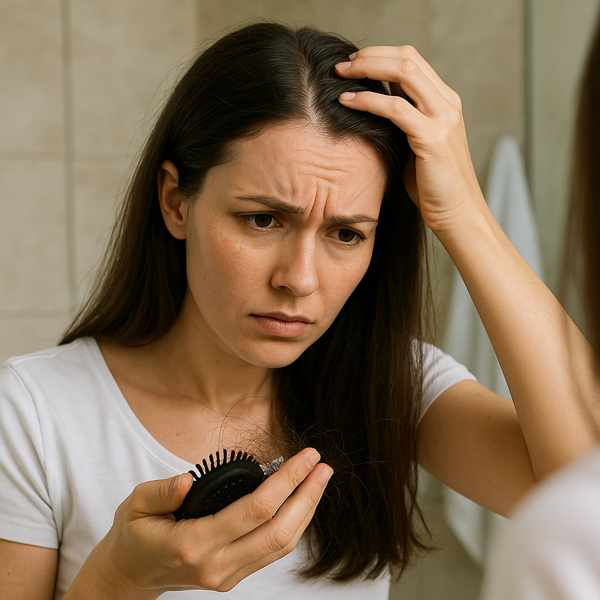
So what’s the connection between weight loss and hair loss, and how can you manage both successfully?
Understanding why this happens and how to protect your hair can help you reach your goals without compromising your confidence.
Why Hair Loss Happens During Weight Loss
Hair loss during weight loss is usually a result of physical stress or nutritional deficiencies.
Common causes include:
- Nutrient deficiencies
- Extreme calorie restriction
- Shifts in metabolism or thyroid function
- The body reacts to sudden changes
Understanding Telogen Effluvium
Most hair loss related to weight loss is called telogen effluvium.
Key facts:
- Usually occurs 2–3 months after weight loss begins
- No bald patches, just thinning
- Hair usually grows back with time
Nutrients Critical for Hair Health
If you're trying to lose weight, be sure not to miss these nutrients:
- Protein
- Iron
- Biotin and other B vitamins
- Supports hair tissue repair and growth
- Linked to healthy follicles and hormonal balance
Skipping meals or using crash diets can easily lead to deficiencies that trigger hair loss.
Yes — With the Right Strategy
You don’t have to choose between losing weight and keeping your hair.
Tips include:
- Lose weight gradually
- Eat a nutrient-rich diet
- Consider a multivitamin
- Manage stress and sleep
- Stay hydrated
What to Do If You’re Already Losing Hair
If you notice excessive shedding:
- Don’t panic
- Get bloodwork done
- Focus on protein and iron intake
- Avoid tight hairstyles and harsh products
- Hair regrowth takes a few months
Should You Talk to a Doctor?
A doctor or dermatologist can help identify underlying issues like:
- Thyroid dysfunction
- Autoimmune conditions
- Severe nutritional deficiencies
The Truth About Weight Loss and Hair Loss
Weight loss and hair loss can visit be connected, but they don’t have to be permanent partners.
Prioritize nourishment, patience, and consistency, and your body will thank you — from head to toe.